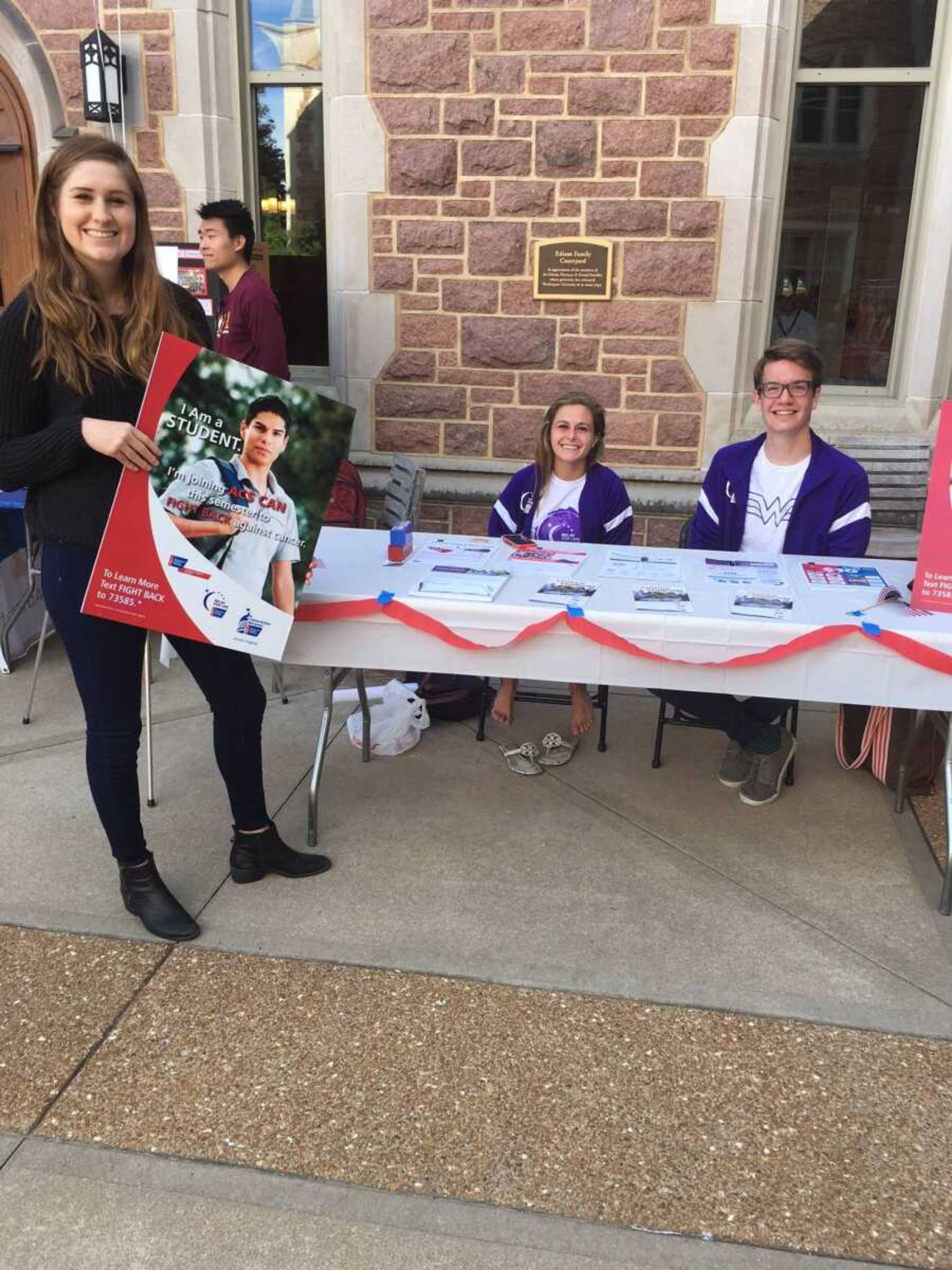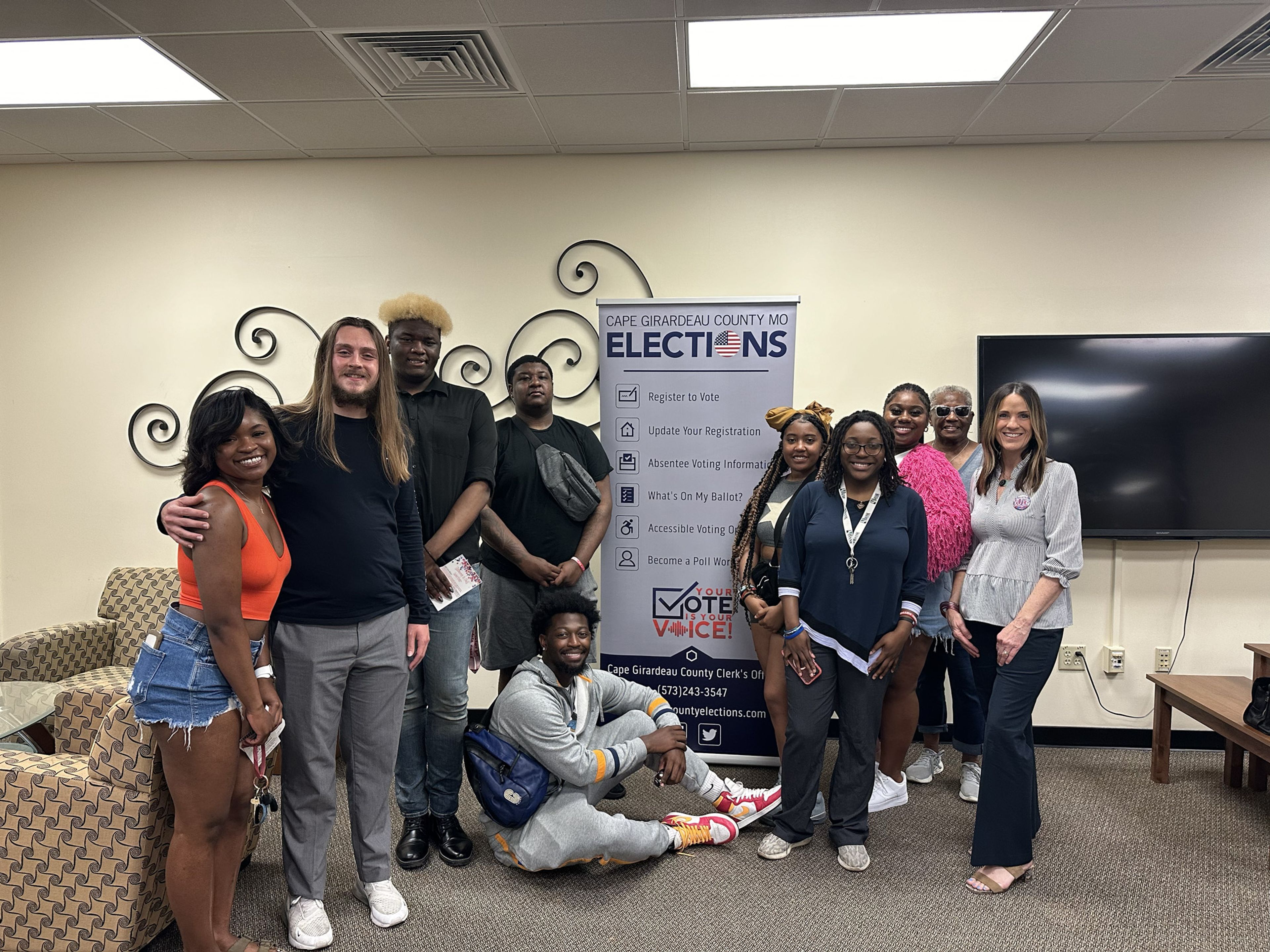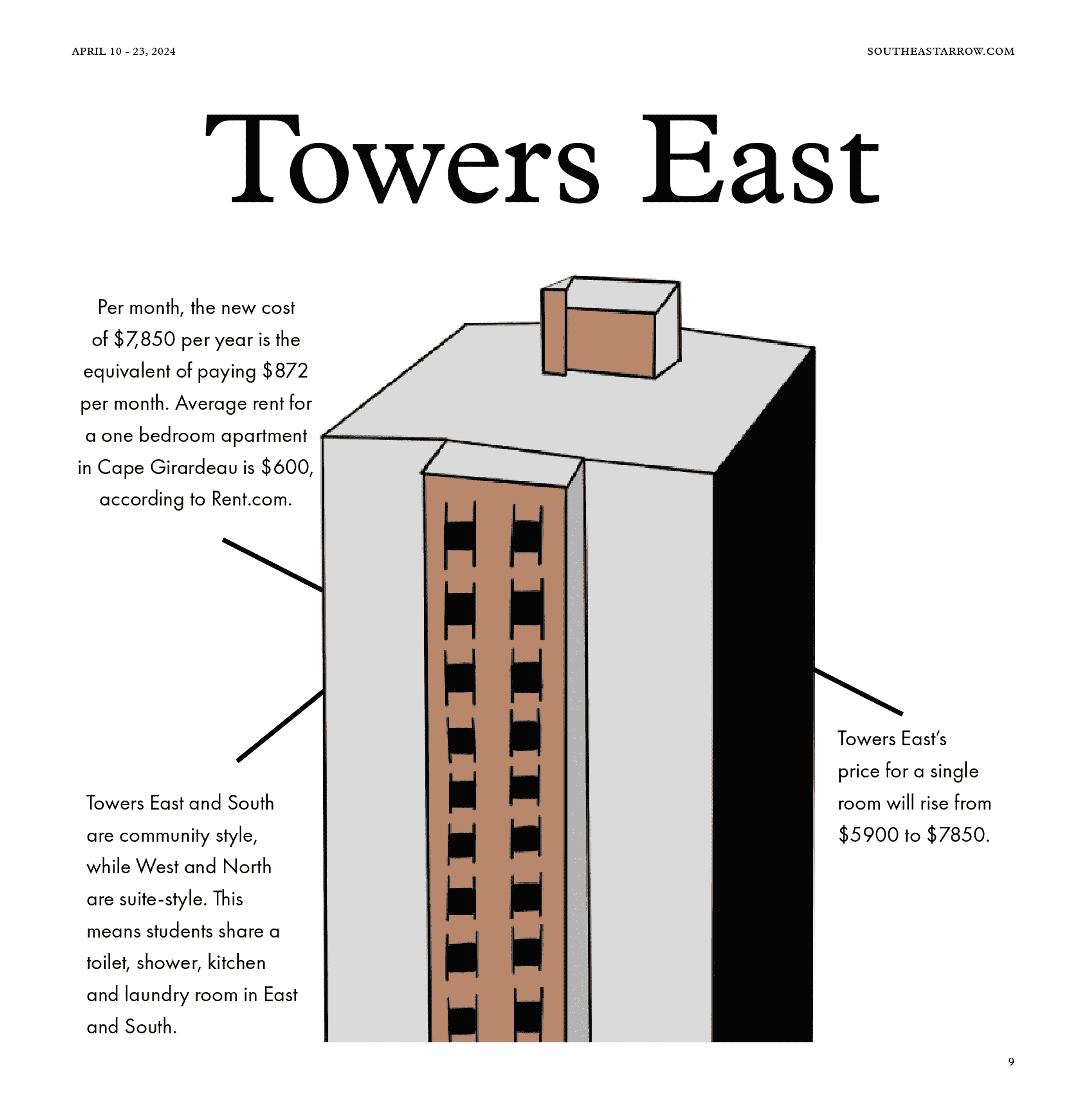On Oct. 9 presidential candidates Hillary Clinton and Donald Trump gathered at Washington University in St. Louis for the second debate in the 2016 presidential debate series. Journalists Martha Raddatz from ABC News and Anderson Cooper from CNN moderated the debate.
Washington University was founded in St. Louis in 1853. The university is ranked 19th in national universities and is most notable for its schools of business, law, social work, medicine and applied science.
Prior to the debate the university hosted a “Debate Fair” outside the Danforth University Center. Presented by the Student Union and Graduate Professional Council, students engaged in policy discussions. With food, music and handmade posters, students stood among the press and voiced their opinions on pressing issues. Students spoke and lobbied for various issues such as domestic policy, healthcare, environmentalism and more.
Mikayla Frye, a junior majoring in global health and environment at Washington University, felt the current state of education should be drastically improved. Fyre was one of the many students who had a table and brought material to the fair promoting her cause.
“There is a lack of discourse around the state of education in America, especially primary and secondary education,” Frye said. “Education and equality start when kids are very young.”
National media outlets such as MTV, CNN News and MSNBC went live on air during the fair, as students cheered in the background. Homemade signs could be seen behind the news desk of NBC News anchor Tamron Hall. The campus was a media hotspot; however, students seemed at ease in their presence.
According to Mo Hollomae, the public affairs chair of the Association of Black Students at Washington University, this is not a new experience for Washington University students.
“I believe Wash U is a very political campus. This presence is different but familiar at the same time. We’re very accustomed to this politically charged campus; this is just on a bigger scale.”
Hollomae is correct. Washington University is no stranger to the heavy media presence and political atmosphere. The Commission on Presidential Debates has asked the university before to host the debate for the election. The Oct. 9 debate was the fifth debate to be held at Washington University.
While the primary focus was on federal government, most students said they also participated in local and state elections. Participating at that level has helped some students make vital connections in the community.
This is especially true for Chole Aimes, a junior majoring in environmental policy at Washington University, and Elaine Emmerich, a graduate student majoring in anthropology and African-American studies. Their organization is Green Action, an environmental justice group advocating for the awareness of the West Lake landfill, which contains radioactive waste.
“West Lake landfill is 10 miles away from Wash U campus. It contains nuclear waste from the Manhattan Project,” Aimes said.
Seeing how this could pose a threat to being close to campus and also affecting the surrounding St. Louis area, Green Action had reached out to other organizations. Just Moms STL happens to be one of them. Just Moms STL voices some of the issue presented to them by Green Action to politicians.
“Just Moms STL organized a platform for different political candidates to voice their opinions on this issue specifically,” Aimes elaborated.
Many students enjoyed the fair. Student used this to their advantage to have their voices on the front line.





